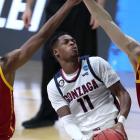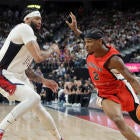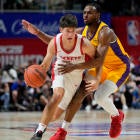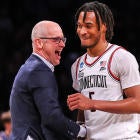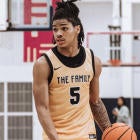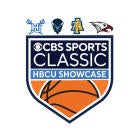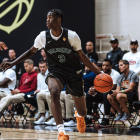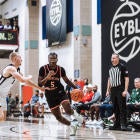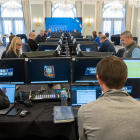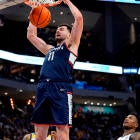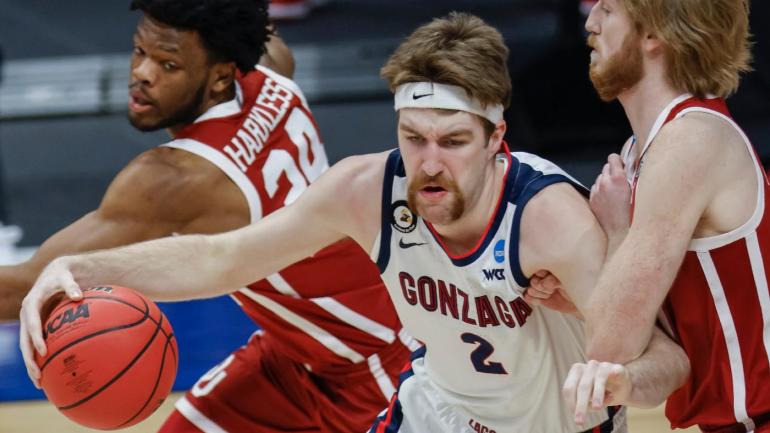
As we look ahead to the conclusion of the 2021 NCAA Tournament with a one-of-a-kind Final Four in Indianapolis, there is one storyline that rises above the rest to dominate the conversation in college basketball. While the national championship contenders include four coaches that have yet to win a title, some regional representation that demands respect for basketball west of the Mississippi and even a second-straight Southwest Conference reunion, the hook for many fans will be whether or not No. 1 overall seed Gonzaga can complete its run as undefeated national champions.
When handicapping the potential for the 2021 Bulldogs to finish undefeated, we look for flaws that could prove critical to a game's outcome. Unfortunately for UCLA, Baylor and Houston there are not many. Gonzaga has won 29 of its 30 games this season by double-digits carrying a 23.1-point margin of victory and even covered spreads of 33, 15.5, 13 and nine points here in the NCAA Tournament. We don't have any regular season losses to use as an example of how to beat this year's juggernaut, and we don't have even have too many times that they've been tested. But that's not unique to 2021 for Mark Few's Gonzaga program, which has maintained this elite level of play for quite some time.
In the last five seasons (since the start of 2016-17) Gonzaga has lost just 13 times. In three of those years (2017, 2020 and 2021) the Zags took, at most, two losses. Now last season could have ended with a third defeat in the NCAA Tournament that wasn't, but that team was very much in the mix for that national championship just like this year's squad. Either way, that average of losing only two to three games per year over a half decade of college basketball is incredible. You pair it with deep runs in the NCAA Tournament -- reaching the Sweet 16 every tournament since 2015 with four Elite Eight appearances and now two Final Fours -- and we can only stand in awe of how the program that Few is performing in the modern era.
But what can we learn from those few losses, and what do we know about the 2021 Bulldogs that might contribute to the gameplan in how to take down the tournament's No. 1 overall seed? Below we've identified a few keys for UCLA and the winner of Baylor-Houston to keep in mind if they want any shot at bouncing the Zags from Indianapolis.
Cause disruption to Gonzaga's offense
In Gonzaga's last three NCAA Tournament losses (North Carolina, Florida State, Texas Tech), all three teams had at least 15 combined blocks and steals. Defensively those teams were able to cause havoc and disrupt the flow of Gonzaga's offense, which is absolutely crucial to keeping them from running away with the game. When the ball is moving quickly, the 2021 Bulldogs are nearly impossible to beat because they are, collectively, the best passing team in the country. If you let Gonzaga get into its pick-and-roll action and then start flipping the ball around the court someone will end up open, and often that player is close to the basket. Gonzaga converts on 63.7% of its 2-point field goal attempts, a rate that ranks No. 1 this season and among the best in modern college basketball history. You have to get your hands in passing lanes, anticipate where the ball will be and see if you can deny them a chance to score. The Bulldogs want to work the ball as close to the basket as possible to get a high-percentage look, so it's on your defense to make sure they don't even get those opportunities.
GET IT OUT 😮@BaylorMBB #MarchMadness pic.twitter.com/v2dk7IdRtT
— NCAA March Madness (@marchmadness) March 30, 2021
Team that could do it: Baylor
The Bears aren't top-10 or even top-20 strong in terms of defensive efficiency, but the thing they do the best on that end of the floor is create steals and force turnovers. Baylor not only stands out as the team most likely to beat Gonzaga based on body of work from this season but if we're going to follow the historical model for how to beat Gonzaga in the NCAA Tournament they fit this criteria. The Bears rank No. 3 nationally turning over opponents on 24.7% of possessions and No. 6 nationally in steal percentage. The key is how Davion Mitchell, Jared Butler and MaCio Teague can apply pressure on opposing guards to throw them out of their rhythm. Throwing out the whopping 24 turnovers by Hartford in the first round, Baylor's next three opponents (Wisconsin, Villanova, Arkansas) have averaged 15 turnovers per game with 23 combined steals in those wins.
Be aggressive around the basket
If you believe in your guards to get going downhill and your bigs to make plays in the post against Drew Timme, then you should absolutely try to attack the basket early and often. While the Bulldogs surprise a lot of teams with their physicality and do a solid job on the boards, there will be opportunities to score inside. The other potential advantage here is that you draw some fouls and give one of Gonzaga's big three (Timme, Suggs, Kispert) something to think about with early foul trouble. Few has talent on that bench that will be key pieces of future NCAA Tournament runs, but I'm sure he'd rather have his top five on the floor for as many of the competitive minutes as possible. Timme, in particular, should be a target for this aggressiveness because of how effective he is on the offensive side of the ball and some limited big man options off the bench. None of the teams in the Final Four have the kind of traditional big man that might be able to really cause problems here, but it should be part of the gameplan either way. Gonzaga may have run away from USC in the first 10 minutes but Evan and Isaiah Mobley were able to have success, combining for 36 points with 57.9% shooting on two-point attempts. Oh and Timme? He was the game's star with 23 points but he also finished with four fouls.
Final Four team that could do it: Baylor or UCLA
While Quentin Grimes deserves a mention for his playmaking ability, I think Baylor and UCLA are the top choices for being able to attack the basket on offense. Davion Mitchell making plays at the rim was on full display in Baylor's win against Arkansas and while UCLA doesn't overwhelm anyone with its post presence Johnny Juzang and Tyger Campbell can both beat defenders off the dribble and get into the lane to score or create for others. Plus there are X-factor forwards like Matthew Mayer for Baylor or Cody Riley for UCLA that are more than capable of coming up with a big play against Timme down low.
Force Gonzaga to take 3-pointers (and hope Kispert doesn't get hot)
Unlike the 2020 team, Gonzaga has not been an elite 3-point shooting team during this historic tear. It's not a huge priority in the offense (No. 278 nationally in 3-point tries per field goal attempts) and while 37.8% is a very good rate that No. 38 national average stands out when compared to the rest of the team's offensive profile. Corey Kispert is one of the best three-point shooters in the country, connecting on 45.3% of his 192 attempts, but the next-best options Jalen Suggs and Joel Ayayi have less than half the amount of Kispert's tries. There has to be some trade-off defensively where by choosing to own the space around the rim you give up some 3-point attempts, but because Gonzaga is not an elite three-point shooting team there's the slim chance that Kispert is off and maybe that poor shooting allows for a chance to keep things close.
Final Four team that could do it: Houston
Gonzaga might have the best two-point offense in the country and one of the best rates from inside the arc in modern college basketball history, but Houston has the profile to be stoppers inside. The Cougars rank No. 5 nationally in 2-point percentage defense and No. 10 in block percentage, so it's possible this is the best bet as a team that can really lock things down around the basket. If Gonzaga does end up settling for 3-pointers, Houston would not only see that as a win given the Zags' strengths but can meet that opportunity with the country's No. 5 3-point percentage defense holding teams to just 28.3% from shots behind the arc.
Control the pace of the game
This is particularly important for UCLA, who meets Gonzaga with a wildly different approach to pace. The Zags rank No. 3 in the country in average possession length on offense and No. 6 overall in adjusted tempo, per KenPom, while the Bruins rank No. 319 in average possession length and No. 338 overall in adjusted tempo. If you can pair defensive disruption with slowing the game on the other end, it's going to be tough for Gonzaga to find a rhythm offensively. Maybe this is where you see the Bulldogs start to press a little, settle for ill-advised three-pointers or contested looks outside the flow of the offense, just as an effort to put some spark in the game.
Final Four team that could do it: UCLA or Houston
We mentioned UCLA earlier, but Houston also fits this bill should they face off in the national championship game. The Cougars actually rank No. 331 in average possession length and No. 328 in adjusted tempo and have played at or below the average possession count in their last three NCAA Tournament games. Houston has an edge on UCLA in being a better defensive team on the season, and while Gonzaga would almost certainly score more than the 61-point cap the Cougars have allowed so far in this tournament I trust Kelvin Sampson's team a little more to get stops in key possessions down the stretch.
Hoping to slow things down, get the opponent in foul trouble and similar tactics mentioned don't make for the most aesthetically pleasing basketball, but one of the great things about the NCAA Tournament is how all these different styles and approaches can be used to create intrigue and uncertainty in a matchup. Gonzaga would beat any team in the field in a seven-game series, but that's not the kind of bracket we play out in college basketball. There are ways that this historic team can be beat, but it's a very specific set of circumstances that can only play out in a one-game scenario. Will it happen this weekend against UCLA? Or on Monday night in the title game? That is the major hook that is going to bring us all together to watch the action on college basketball's biggest stage in Indianapolis.








